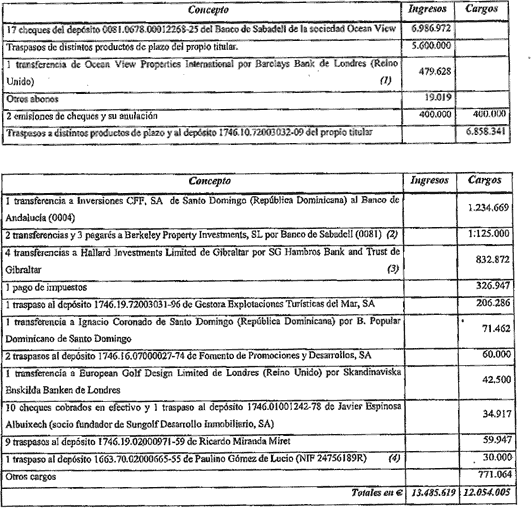President of Community of Owners Launches Full Legal-Offensive Against 3 Kg Maltese Bichon
 Pet-hating Altos de Miraflores has put Mr. Philips in an awkward position. In his position as President of the Homeowners Association he has had to give full and final notice of legal action, and eviction if necessary, to an owner who has chosen to lodge a diminute dog in his private home.
Pet-hating Altos de Miraflores has put Mr. Philips in an awkward position. In his position as President of the Homeowners Association he has had to give full and final notice of legal action, and eviction if necessary, to an owner who has chosen to lodge a diminute dog in his private home.
The community-regulation “infringer”, a good friend and client of the firm, was about to dispatch the animal to the Triple A (local dog rescue centre) after receiving a threatening letter (since he was in no position to sell the apartment). When I was told about the case, I immediately identified an excellent story for my blog, so I will not spare one word of the exchange of correspondence. Enjoy!
Letter from The Community of Owners to my client
Letter from our firm to the Community of Owners
From: LAWBIRD LEGAL SERVICES
To: Mr. Ron Phillips/ President of the Community of Owners
Dear Mr. Ron Phillips,
In my position as acting lawyer for Mr. Shahram Varasteh, owner of apartment number 70 of the Edificio Altos de Miraflores, I hereby respond to your letter dated the 20th of July 2010 where you demand from my client, in connection with a number of articles of the statutes, that he moves his dog to another place or, should he does not wish to abandon his pet, that HE removes himself from HIS apartment because otherwise YOU will, pursuant to the mentioned articles, instigate legal action to ultimately deprive HIM from living in HIS apartment.
The above let me confirm to you, Mr. Philips, is incorrect.
Firstly, because we thankfully no longer live under a dictatorship. Unless, of course, one happens to live in the Community of Owners of Los Altos de Miraflores, presided by your iron-fist, extravagant and draconian forms.
You should be reminded that article 18.2 of the Spanish Constitution establishes the inviolability of one’s home. In a hierarchically superior instance, the European Convention on Human Rights established, in its article number 8, that:
- Everyone has the right to respect for his private and family life, his home and his correspondence.
- There shall be no interference by a public authority with the exercise of this right except such as is in accordance with the law and is necessary in a democratic society in the interests of national security, public safety or the economic well-being of the country, for the prevention of disorder or crime, for the protection of health or morals, or for the protection of the rights and freedoms of others.
Secondly, because the articles of the statutes of the Community that you preside, which prohibit dogs, are not enforceable erga omnes , that is, against all animals or people. It is now accepted by unanimous case law that controversial prohibitions like the one you wish to enforce have to be interpreted necessarily in conjunction with other fundamental rights inherent to the quality of being a property owner.
The Horizontal Property Act you refer to, in its Preamble, stipulates that the rights of enjoyment tend to give the owner the maximum possibilities of utilization, with a limit represented by concurring rights of equal importance of other members of the Community, as well as the general interest.
Such prohibition, in the words of the Madrid Provincial Audience (SAP 4th June 2001), finds, within the communal environment in which is adopted, its full enforceability and efficacy insofar as the Community members interact outside the private environment, in relation to the right to privacy and exclusive use of a private home.
It would be, in the opinion of the Madrid Court, against logic and common sense to uphold a restriction that entailed an unjust limitation and intrusion in the faculties of use and enjoyment that conform singular and private ownership, when such restriction does not respond to a legitimate and meritorious interest. And finally, that the prohibition set forth in the statutes implies, undoubtedly, a grave restriction to the right to an ample enjoyment that every owner has.
If you wish to read further I can quote the following rulings (among many), where you will find that all consider that these prohibitions are of impossible enforceability:
- Audiencia Provincial de Asturias, sec. 4ª, S 19-10-200 9
- Audiencia Provincial de Segovia, sec. 1ª, S 21-10-2005
- Audiencia Provincial de Castellón, sec. 1ª, S 14-12-2001
The position of German and French law, for your information, is also fully coincidental with it´s Spanish counterpart.
The result of all of the above is that you can indeed impede owners from having dogs if these are proved to be dirty, noisy, dangerous, disease-ridden or any other potentially annoying quality that, as far as I am told, is not pertaining to Mr. Varasteh dog (even though they may well tick all boxes for some human candidates!). This is, Mr. Phillips, the maximum amplitude of the prohibition currently in force in the Community of Owners that you preside over and if you can therefore prove to me, in the first instance, or the Courts, that this dog annoys anyone (apart from you), bearing in mind that the elasticity of the meaning of “annoyance” cannot be equated to caprice or personal or fanciful taste or distaste, nor can encapsulate animal-hating militants, dog-phobia sufferers or similar strange individuals, then Mr. Varasteh will not object to, when the Courts determine so, remove his animal from your sight.
Finally, please note that only the Town Hall or any superior legislating body can ban someone from having a street-legal animal at home (and not your Homeowners Association), to the extent that if such animal is objectively not impeding other owners from fully enjoying their private homes, communal spaces, without objective “annoyance”, then there is little you can do about it.
It is therefore clear that the prohibition, established by your community, of keeping a dog in a private property is null and void and therefore unenforceable.I will request in any event from Mr. Varasteh that he immediately disallows his pet any enjoyment of the communal areas as well as ensures that his Maltese Bichon is always on a lead when in transit, through those areas of community public use, to the D-point, or defecation point, where of course he will clean up after it (pursuant to dog-owning municipal ordinances).
Should you have any query in respect of the above do not hesitate to contact me.
With kind regards
Sincerely
Lawbird Legal Services






